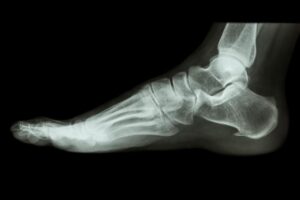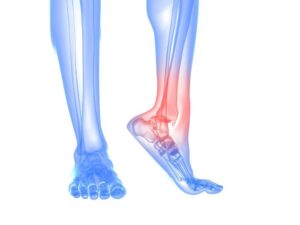Can Arthritis Cause Fractures?

If you’ve been diagnosed with arthritis in your ankle or foot, you’ve probably experienced the common symptoms of swelling, tenderness, and foot and ankle pain. What you might not know is that having arthritis can also lead to a higher incidence of fractures.
If you have arthritis, it’s important to work to preserve your bone density to ensure your incidence of fractures doesn’t increase. Ryan Golub, DPM, the board-qualified podiatrist at Arizona Foot Health in Phoenix, Arizona, explains the link between arthritis and fractures, and how to prevent fractures when you have arthritis.
What is arthritis?
Arthritis is an umbrella term that describes chronic inflammation in your joints. Various forms of arthritis can strike your ankles or the joints in your feet.
Anyone can get arthritis, but it’s most common when you’re over 65, are female, have a family history of arthritis, or are obese. The most prevalent symptoms of arthritis include swelling, pain, and stiffness in the affected joint, which can make it more difficult to maintain an active daily life.
The connection between arthritis and fractures
In addition to its other symptoms and side effects, having arthritis also increases your risk of fractures. The reason for this is that arthritis can weaken your bones.
Any kind of arthritis can lower your bone density, but the link is especially strong between rheumatoid arthritis, a form of arthritis caused by autoimmune disorder, and psoriatic arthritis, which you can develop if you have the skin condition psoriasis.
The reasons you can have lowered bone density with arthritis include:
Osteoporosis
You’re at higher risk of developing osteoporosis, which increases your likelihood of getting fractures, if you have rheumatoid arthritis. If you’re at higher risk of getting both osteoporosis and arthritis, you might also develop both conditions independently of each other, and they can then concurrently up your risk of fractures.
Increased inflammation
The inflammation you experience with arthritis can break down your surrounding bones. This results in lowered bone density in the area, upping the fracture risk there.
Medications
Some of the medications used to treat arthritis, especially rheumatoid arthritis, can have the side effect of lowering bone density and weakening your bones. Corticosteroids in particular make it harder for your body to absorb calcium and vitamin D, which are both important for strong bones.
Lifestyle changes
Having arthritis can make it more difficult to be active, which might mean you’re exercising and moving less and doing fewer weight-bearing exercises. This can also lead to bone density loss.
Preventing fractures when you have arthritis
At Arizona Foot Health, Dr. Golub treats any foot and ankle fractures you develop as a result of your arthritis. Just as important, he can perform a bone scan to see if your arthritis has caused a loss of bone density and develop an individualized treatment plan to help you strengthen your bones and prevent fractures.
Dr. Golub’s preventative treatment plan for you might include:
- Physical therapy and exercises that keep your bones strong.
- Finding medication or other arthritis treatment that doesn’t cause bone loss.
- Increasing your calcium and vitamin D intake.
- Helping you make lifestyle changes, including being more active, quitting smoking, and weight loss, that aid bone strength.
If you have arthritis and would like help keeping your feet and ankle bones strong and healthy, request an appointment online or at 602-973-3888.
You Might Also Enjoy...
The Achilles Heel
Given Arizona’s climate, patients are able to remain active year round. It’s why we all chose to live here. But…
Alleviating Back Pain and Other Benefits of Custom Orthotics You Didn’t Know About
Would you ever imagine that custom foot orthotics could improve your quality of life? That’s what many people say after…
9 Helpful Tips to Prepare Your Home Before Bunion Surgery
When moderate interventions, such as wearing wider shoes or using pads in your shoes, fail to ease your bunion pain…
When Should You Go to the Doctor for an Ingrown Toenail?
In most cases, you can nurse an ingrown toenail at home with over-the-counter pain medication, topical antibiotic creams, and soaking…
6 Home Exercises to Keep Your Ankles Strong
Ankles that feel wobbly and weak are vulnerable to injury. If you play sports, run, jump, or just walk often,…
Is Surgery My Best Option For Treating Bunions?
You have a bunion and it isn’t pretty, but if your bunion is small enough, or doesn’t hurt, you may…






